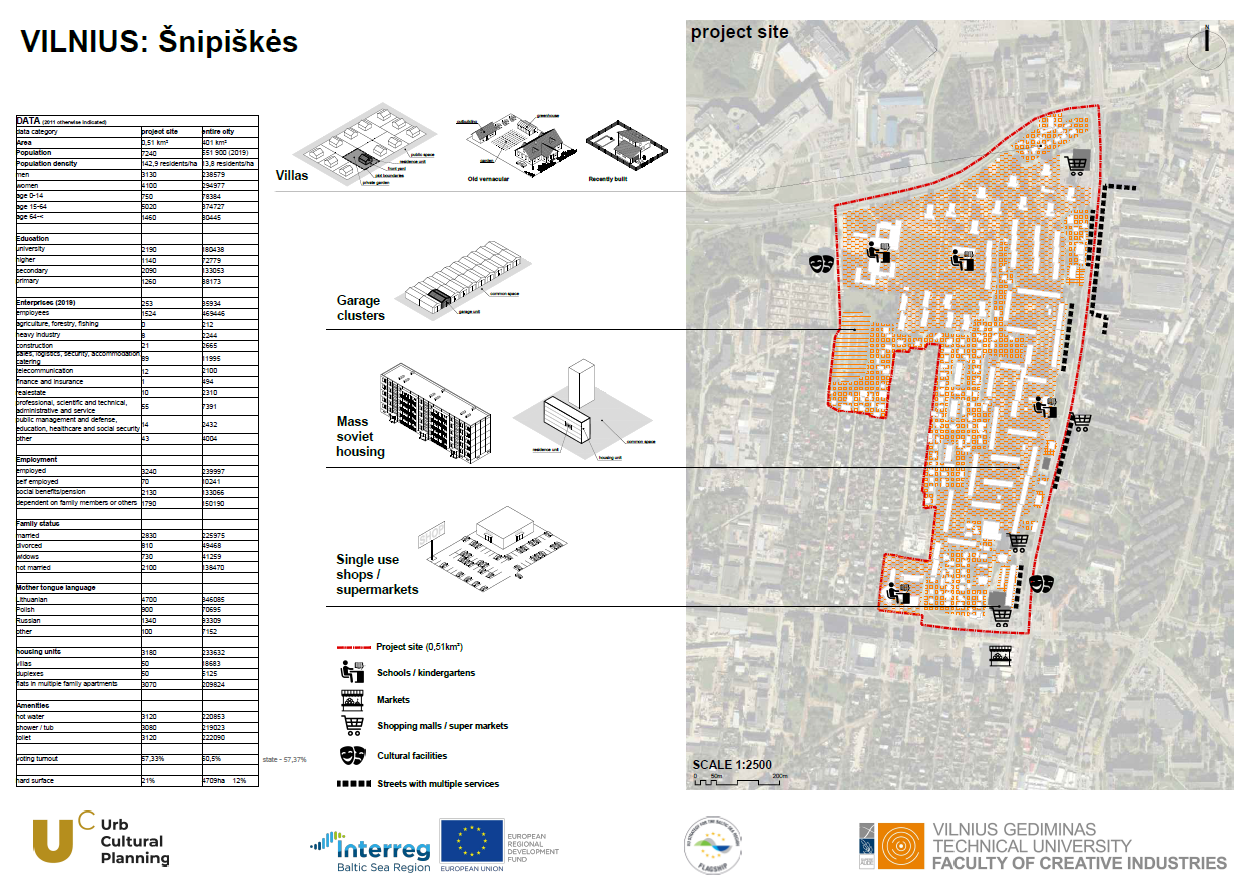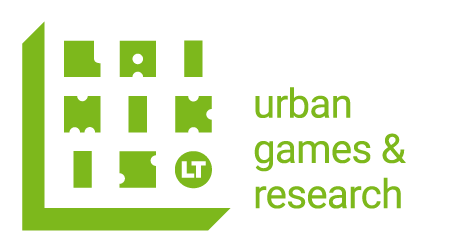Urban Cultural Planning – citizen-centred social innovation (Interreg BSR)
Project title: Cultural Planning as a proven method of citizen-centred social innovation (Urban Cultural Planning).
Partners: Danish Cultural Institute (Leader), City of Pori, City of Riga, Guldborgsund municipality, Pomorskie Voivodeship, City Culture Institute, Heinrich Böll Foundation Schleswig-Holstein, Project company Kiel-Gaarden GmbH, The Baltic Sea Cultural Center, Copenhagen International Theater, University of Skövde, Inland Norway University of Applied Sciences, Vilnius Tech University.
As an associate partner of the project, our urban games and research Lab has contributed to the field research, co-design activities (Urbingo game’s version for the blocks of flats area, the catalogue of local plants, and a co-design workshop with children) and arrangement of the Urban Lab Vilnius / Co-urbanism 2020 (online forum in placemaking, participatory urban development and urban cultural planning).
Model: In this project, the urban cultural planning process starts with the mapping phase, moves to the visioning phase, and ends with the prototyping phase. However, the process is non-linear, as, during the prototyping phase, you learn new things about the neighbourhood, contributing to the data collected during the mapping. Also, the outcomes of the prototyping phase may adjust the visions of the neighbourhood’s development.
Sites of project: 10 neighbourhoods across the Baltic Sea Region.
Areas of the project in Lithuania:
• Visaginas (lead Oksana Denisenko);
• Vilnius, a territory of blocks of flats in Šnipiškės district (lead Dr. Jekaterina Lavrinec);
• During the lockdown in 2020-2021, the geography of the local cultural planning activities expanded by involving more districts in Vilnius and municipalities in Lithuania, where the students Creative Industries, Vilnius TECH University stayed (lead Dr. Jekaterina Lavrinec).
Results in Vilnius (Šnipiškės):
• Documented and described scenarios of the everyday use of courtyards;
• 210 interviews with residents. Focus: residents’ activities in the courtyards of the blocks of flats;
• More than 40 gamified routes and creative workshops with the residents of various ages in Šnipiškės (during the lockdown, the geography of the gamifies routes expanded to other Vilnius districts, Lithuanian towns and cities);
• Street Trees game for Šnipiškės was arranged in cooperation with the parks expert Dainius Labeckis;
• Two online Urban Labs, one in Vilnius and the other in Visaginas, were arranged with hundreds of participants;
• Two art residencies were arranged – with Iza Rutkowska in Vilnius and Lucyna Kolendo in Visaginas. In the framework of the residency in Vilnius, an urban planning workshop for kids, “What animal is this” was arranged, and an exhibition based on the artefacts of the future museum of Visaginas was opened;
• Series of site-specific art interventions in the Šnipiškės courtyards by invited artist Pijus Čeikauskas;
• Series of placemaking initiatives by the Yours Yard group in the Šnipiškės courtyards;
• Performative placemaking action “Šnipiškės totem” with Šnipiškės kids and parents was run by invited Teatronas.
Check for Activities in Visaginas.pdf and Activities in Šnipiskes and other locations across Lithuania.pdf
Dissemination. Conferences:
• Jekaterina Lavrinec, conference paper “Students and Children as Cultural Planners” at “Cities in Flow”, Urban Cultural Planning Riga conference 2021
• Jekaterina Lavrinec, conference paper “Reinventing green spaces in the “sleeping districts” at Cultural heritage in a changing climate: Oslo Forum 2021, 28–30 September.
• Jekaterina Lavrinec, paper “Cultural Urban Planning: Green Space and Quality of Life” („Kultūrinis miestų planavimas: žalia aplinka ir gyvenimo kokybė”) at Inclusive Urban Planning: Perspectives for Collaboration, Seimas of the Republic of Lithuania, Contitution Hall, Vilnius, 2022
Webinars:
• Jekaterina Lavrinec “Implementation of the Cultural Planning: Exploring and Co-designing the Yards with the Residents” for KunstMacht Webinars on Cultural Planning, organised by Heinrich-Böll-Stiftung SH for municipalities in Germany, November 14, 2022.
Among the practical topics covered in this webinar are:
– Navigation within the neighbourhood: How do people navigate the neighbourhood, and what are their routes? Are there public places or yards for meetings?
– Involving kids and youngsters: How do kids and youngsters use public places in the neighbourhood? Are these groups visible in the neighbourhood?
– Non-financial resources: What resources are available for activation in your neighbourhoods?
– Networking: Who can be your partners? What local institutions, organisations, and groups?
– Networking + non-financial resources: What resources your partners could / would contribute to the process?
Publications: Lavrinec Jekaterina. “Rediscovering green spaces through creative practices” // Cultural heritage in a changing climate. Oslo: The Norwegian Directorate for Cultural Heritage, 2022, p. 104-109.
Supported by: Interreg Baltic Sea Region
Duration: 2019-2021


